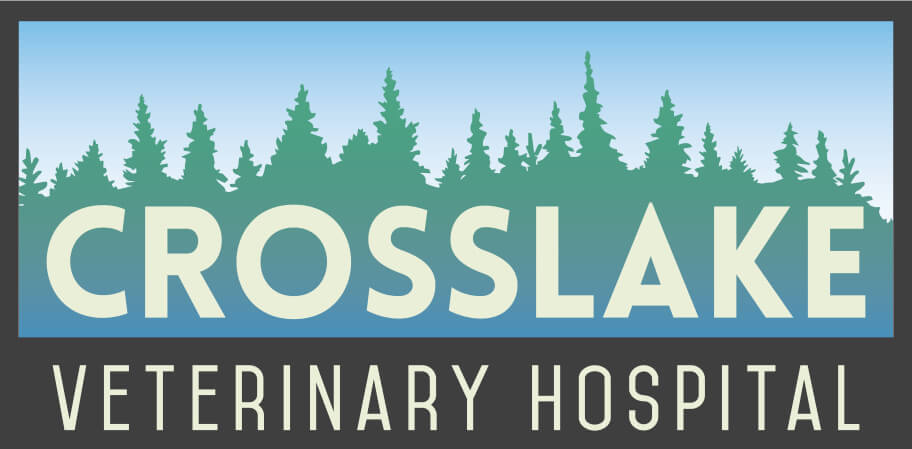Are there health issues I can watch out for at home?
There are a lot of health issues that you can help us know that are going on with your pet at home by watching a few key things. The biggest things are diet and what they are drinking. So not only how much they are eating, but in general, are they drinking more? Are they drinking less? Are they going outside more? Are they going outside less? Anything that's changed there. Their mobility, you are often the best indicator for us on what you are seeing when the dog's in their normal home environment. How easy is it for them to move around, jump in and out of vehicles? Is there ever an intermittent limp that maybe they won't show us in the vet clinic? So those are big things for you to watch out for at home. The last one for us is behavior. We often don't know how your pet may have anxieties or behavior changes, travel changes, things like that that are going on at home. If you let us know those things, we can certainly walk you through what we advise for those conditions.
Dr. Rachael Johnson
Crosslake Veterinary Hospital
How do I know if my puppy or dog isn't feeling well or is in pain?
Pain is tough. When we talk about puppies, oftentimes when puppies have pain, they may show you more acute signs. They may just be lethargic and not want to move. Yes, they may cry out. Older dogs tend to have more chronic pain, and they're often not going to show you any sharp evidence of pain. They're going to do maybe a little bit more panting, more sleeping, more laying around, don't really want to follow you maybe as much, and they may have some limps, some hunched appearance. More signs are simply related to lack of movement and slowness in those movements. Those can be a big indicator of pain.
How can I keep my dog from becoming overweight? And how important is regular exercise to dog wellness?
That is a question we get every single day. So we love our pets so much, we love to give them treats, but we can end up giving them a little bit overweight. So the number one recommendation we have, meal feed your pets. Feed them a morning and an evening meal. They don't tend to want to eat twice a day. Once a day is still fine too. But when we meal feed them, we know the volume they're getting. We can tell if there's any changes to their appetite, but that really helps us keep better control. And if our pet's starting to trend upward, we can then scale that amount we're feeding down a little bit. Regular exercise is also vitally important all the way through their life. It's good for their mental health, but it keeps those joints moving. Even if they're arthritic, we still want them walking every single day. And then we will help them keep their muscling the more active they are. So I can't even stress how important help their general well-being will be aided by routine exercise. Not just for their weight, but all of their well-being.
When should I bring my dog into the veterinarian?
If you just got a brand new puppy or adopted a new dog, right away. If it's a puppy, we want to see them in their first few weeks of life. If it's a dog you just adopted, we want to see them as soon as you get them to help make that transition as easy as possible. For an older dog, come in when they're due for their annual visit and vaccinations.
Dr. Rachael Johnson
Crosslake Veterinary Hospital
How we assess wellness here at Crosslake Veterinary Hospital
When you come in, we conduct a full, thorough exam from nose to tail. We look inside the mouth, ears, and eyes for any age-related changes. We check for lumps, bumps, skin changes, new masses, infections, and signs of allergies. A musculoskeletal exam is performed to check every joint, assess symmetry, muscling, and your dog's body condition. We listen to the heart and lungs for murmurs or arrhythmias and palpate the abdomen for any abnormalities, enlargements, or pain. We also examine the hair coat.
What do you recommend to keep my dog in optimal health?
Our recommendations are focused on your pet's individualized health. We advise on lifestyle vaccines in addition to core vaccines, dental care, diet, exercise, feeding amounts, and supplements. We may also recommend baseline preventive health screening for early detection of problems such as liver, kidney, or heart disease. Early detection significantly improves longevity and quality of care for your pet.
Additional services during wellness visits
Beyond the comprehensive exam, we address any questions you have and administer any due vaccines. We can provide additional services such as nail trims, anal gland expression, and other routine care items. If necessary, we may recommend X-rays or other diagnostic tests based on our findings during the exam.
When should I return?
For middle-aged, young, and healthy pets, we generally recommend annual screenings. For senior pets or those with underlying health conditions, we recommend visits every six months, as these pets age differently and may require more frequent monitoring.
If you have any other questions, please give us a call at (218) 692-4400. You can also email us at [email protected] and we will get back to you as soon as we are able. Don't forget to follow us on social media: Facebook and Instagram

